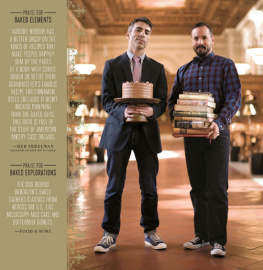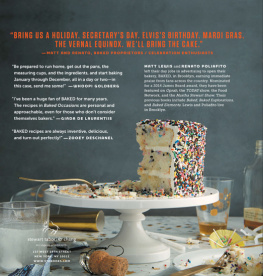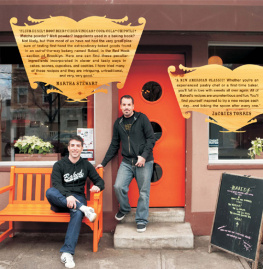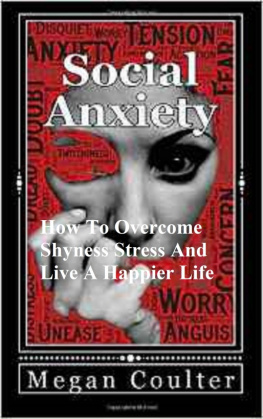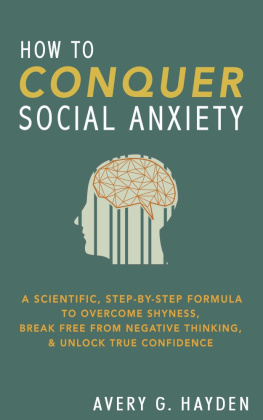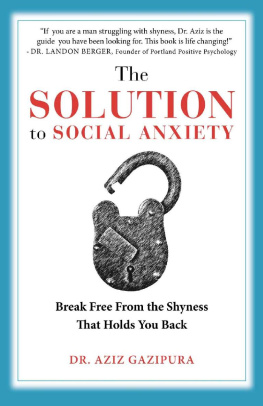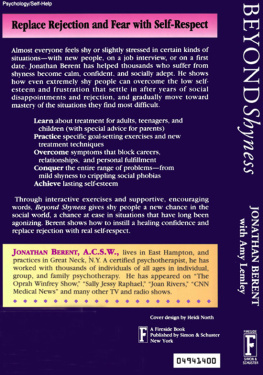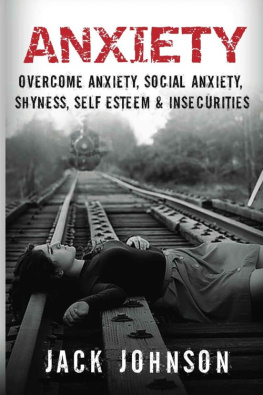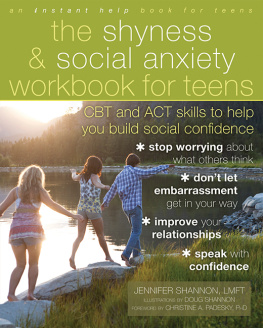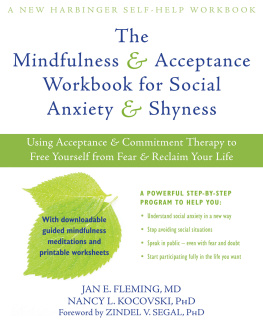Overcome Social Anxiety and Shyness
A Step-by-Step Self Help Action Plan to Overcome Social Anxiety, Defeat Shyness and Create Confidence
Dr Matt Lewis
Copyright 2017 by Dr Matt Lewis
All rights reserved.
No part of this book may be reproduced in any form or by any electronic or mechanical means, including information storage and retrieval systems, without written permission from the author, except for the use of brief quotations in a book review.
About the Author
Dr Matt Lewis holds a Ph.D. in psychology and is a former university academic who now delivers public and online courses in emotional wellbeing and personal development. He lectured in health psychology, exercise psychology, and mental health to undergraduate and postgraduate students, while also designing and delivering courses in mindfulness, positive psychology, and Acceptance and Commitment Training (ACT) to the general public, trainers, teachers, and health professionals.
www.DrMattLewis.com
Part One: Safety Mode
Understanding Social Anxiety and Shyness
I first met Sarah at an anxiety workshop for university students in the Autumn of 2016. She was sitting at the back of the room, in the far right-hand corner, a large gap of empty chairs separating her from everyone else. I always attempt to make eye contact with everyone in the room during my workshops, but every time I looked in her direction her head would bow and I couldnt catch her eye. During the group exercises, rather than joining in with the others, she stayed in her seat in the corner, preferring to take notes or stare at her phone.
After the workshop had finished, and Id answered questions from students, she was still sat in her seat in the corner, so I walked over and introduced myself. She looked up at me; her face and neck flushed, and told me her name in a whispered voice. I asked her why she had come to the workshop as gently as I could, and after a few tears her story came flooding out.
Sarahs social anxiety was so debilitating that she didnt attend her classes on the first day of university, knowing it was possible that the lecturer would ask students to go around the room and introduce themselves. Just sitting in a room, waiting to introduce herself to strangers who will stare at her, makes her feel physically sick. Shes aware that her voice sounds shaky and her face reddens when speaking in public. Sarah knew she wouldnt have been able to think clearly because her anxiety in those situations is often intense, and she might have made a stupid mistake. She once even blanked on her own name.
So she skipped the first day of classes and then got scared about being the only new student at the next set of classes. It had spiralled out of control and she hadnt attended any lectures during the first three weeks of university. Sarah was informed that if she didnt attend within the first four weeks she would have to leave the course, so booked an appointment with her doctor to discuss her anxiety. As the first available appointment was two weeks away, on the advice of the course administrator, she had signed up for my workshop. So here she was. She said, It just feels impossible to beat.

As a former lecturer I often heard stories from students about how anxiety had impacted on their academic work and often their lives outside of university too. Answering questions in lectures was terrifying for many and taking part in group work and class discussions often caused sleepless nights. Then there was the dreaded class presentation; the majority of students feared them, and many even excused themselves from them with medical notes referring to severe anxiety.
Having suffered from anxiety myself, I empathized and understood many of their fears and struggles. I could also provide them with the powerful hope that its possible to change your relationship with anxiety and manage it in a way that not just helps you to survive at university, but enables you to thrive, while still living by your core values and being true to yourself. I could explain how someone like me, who was scared of speaking on the phone and terrified of social gatherings, could now lecture in front of more than 200 students.
In cases of severe anxiety, I always advised students to seek help from the university support services or their General Practitioner. I also discussed strategies that could help them with their anxiety and get their coursework back on track. As more and more students approached me, I worked on a guide to help with everyday anxiety that students could take away with them after their appointments. I designed the guide to be preventative to stop early symptoms developing into clinical problems but also to go beyond that; to build confidence and help them become unstuck and move forward with all the things they needed to do to pass the course and get on with their lives.
Students who didnt suffer from anxiety, but had heard the exercises were helpful in building more confident and positive lives, approached me and asked to have access to the guide. The guide developed into an online course and then a book on overcoming general anxiety. Following the publication of the book and related public workshops, I received many requests for more specific help with social anxiety. So I set to work on a new book that tailored the information and exercises to help those for whom social anxiety was a particular problem. Youre reading that book right now. Its based on the same principles of the previous book, but focuses on applying them to social situations that provoke anxiety.
Although my background is working with students, the approach used in this book isnt age or student specific. It includes background information on how social anxiety can develop in people of all ages, alongside preventative and interventional exercises derived from a breadth of research on managing social anxiety and shyness, and building confidence. Ive used these exercises in workshops for those suffering with social anxiety in colleges, the workplace, and everyday life.


